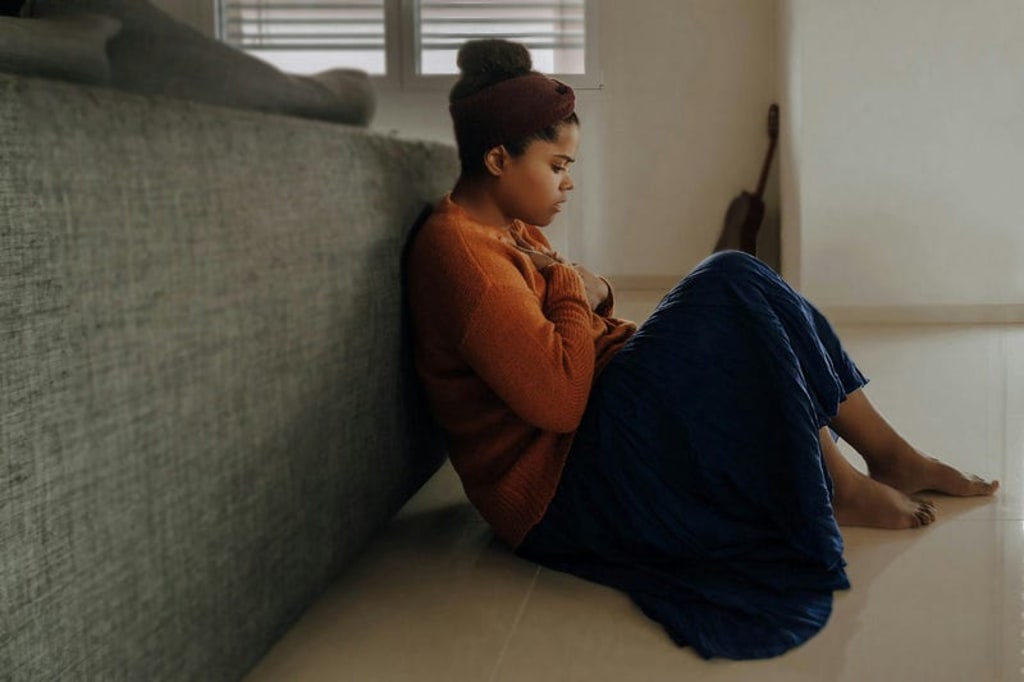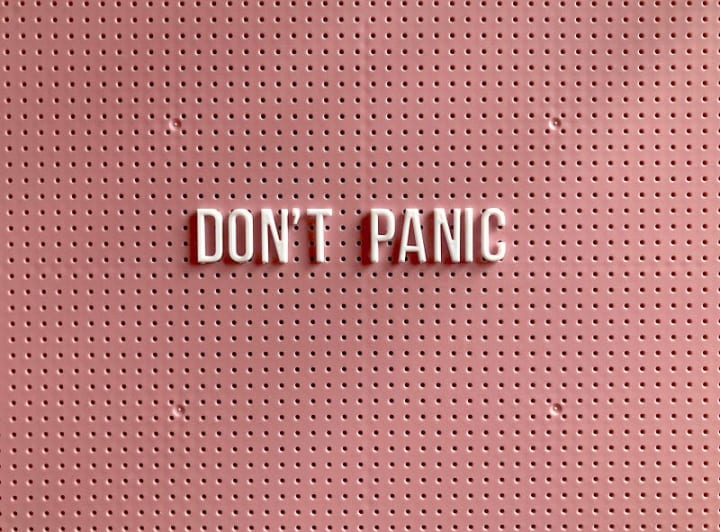Understanding Anxiety: Causes and Coping Strategies
I know how heavy anxiety can feel because I've felt it too. That's why I want to share ways to deal with it.

Anxiety is a common feeling that can be good and bad. It can push us to do our best and make smart choices. But, too much anxiety can make our daily life hard and take away our happiness.
Key Takeaways
- Understand the root causes and types of anxiety disorders
- Recognize the physical and emotional symptoms of anxiety
- Explore proven coping mechanisms to alleviate anxiety
- Discover the role of therapy and medication in treating anxiety
- Learn how to create a supportive network for managing anxiety
We will look into anxiety's complex nature. We'll see what causes it and how it affects us. We'll also find out how to fight it and find peace.
This guide is for you if you want to understand your anxiety or help someone who has it. It will give you the knowledge and tools to face this tough condition.
Reducing Anxiety: Time-tested Methods for Regaining Calm and Balance. Click here to get started!
What is Anxiety?
Anxiety is a feeling we all get sometimes. It makes us feel nervous, worried, and scared. But, it's a problem when it gets too much and stops us from living our lives.
Recognizing the Symptoms
Anxiety shows in different ways for everyone. Some common signs are:
- Feeling restless or on edge
- Feeling tired and having trouble focusing
- Feeling irritable and tight muscles
- Having trouble sleeping
- Beating fast and sweating
If these signs don't go away and affect how you live, you might have an anxiety disorder.
Anxiety vs. Normal Worry
It's key to know the difference between normal worry and a real anxiety disorder. Feeling worried or nervous sometimes is okay. But, if it gets too much and takes over your life, it could be an anxiety disorder. This kind of disorder makes you have strong, ongoing fears that really hurt your life.
"Anxiety is the dizziness of freedom." - Søren Kierkegaard
Causes of Anxiety Disorders
Anxiety disorders come from many things. These include genetic factors, stressful life events, and environmental influences. Knowing why anxiety happens can help people handle it better and find the right treatment.
Genetics are a big part of anxiety. If your family has anxiety, you might get it too. Some genes make you more likely to feel anxious all the time.
Stressful life events also cause anxiety. Things like losing someone close, a bad experience, or ongoing stress at work can make anxiety worse. This stress can mess up how your body handles stress, leading to more anxiety.
"Anxiety disorders are often the result of a complex interplay between genetic, environmental, and psychological factors."
Environment also affects anxiety. Being in a bad relationship, living in a stressful place, or not having friends can make you more anxious. These things, with your genes, can make anxiety more likely.
Knowing what causes anxiety helps people and doctors make better treatment plans. It shows that anxiety is complex and needs a caring approach to help.
Types of Anxiety Disorders
Anxiety disorders have many types, each with its own signs and symptoms. Two common ones are generalized anxiety disorder and panic disorder.
Generalized Anxiety Disorder
Generalized anxiety disorder (GAD) means feeling worried a lot and can't stop. People with GAD worry about things like work, health, or family. They might feel tired, have tight muscles, and find it hard to focus.
Panic Disorder
Panic disorder is when you have sudden, strong fear attacks. These attacks make your heart race, you sweat, and you shake. You might feel like something terrible is going to happen. This can make you avoid certain places or things.
It's important to know about these types of anxiety. This helps us understand and help those who are anxious. By learning about generalized anxiety disorder and panic disorder, we can find ways to cope better.

The Impact of Anxiety on Daily Life
Anxiety can really change how you live your day. It affects your work, relationships, and how you feel overall. It makes simple tasks seem too hard.
For those with anxiety, life can be tough. It makes it hard to focus at work or do everyday things. It can also hurt your relationships. The worry and tension can make it hard to connect with others.
Anxiety also brings physical symptoms like a fast heartbeat, sweating, and tight muscles. These can make it hard to relax or enjoy simple things. You might feel tired, irritable, and have trouble sleeping, which affects your well-being.
"Anxiety can be a constant, nagging presence that makes it hard to enjoy the present moment. It's a battle I fight every day, but I'm learning to manage it better with the right coping strategies."
Seeing how anxiety affects your life is the first step to getting help. By dealing with the emotional, cognitive, and physical parts of anxiety, you can take back control. You can start enjoying the things and people that make you happy again.
- Anxiety can make it hard to do well at work. It can make focusing and finishing tasks tough.
- It can also hurt your relationships. The worry and tension can make it hard to be fully there for your loved ones.
- The physical signs of anxiety, like a fast heartbeat and tight muscles, can mess up your daily life. It makes relaxing hard.
By understanding how anxiety affects you and getting the right support, you can start to manage it. This helps you take back your daily life.
Anxiety and Physical Health
Anxiety is a common mental health issue. It can greatly affect our physical health. Our mind and body are closely linked. This means our thoughts and feelings can change how our body works.
When we feel anxious, our body shows it in many ways. We might have a fast heart rate, tight muscles, or stomach problems. These symptoms can make us feel worse and start a cycle of worry about our health.
The Mind-Body Connection
Anxiety shows up in our body in different ways. It can make our heart race, muscles tense, and our stomach upset. These signs can be scary and make us feel stuck in a cycle of worry and health problems.
When we're anxious, our body's stress system gets overactive. This makes our body release stress hormones like cortisol. These hormones can affect our heart and stomach, causing more problems.
Handling the physical side of anxiety is as important as dealing with the mental and emotional parts. Things like deep breathing, relaxing our muscles, and being mindful can help calm our body. This can stop the cycle of worry and health issues.
"The mind and body are not separate things, but work together. Fixing the physical signs of anxiety is key to feeling better overall."
Understanding how our mind and body connect helps us find better ways to deal with anxiety and health problems. This way, we can get better physically and mentally. It helps us live happier, healthier lives.
Reducing Anxiety: Time-tested Methods for Regaining Calm and Balance. Click here to get started!
Coping Strategies for Anxiety
Dealing with anxiety can be tough, but there are ways to help. Cognitive-behavioral therapy (CBT) is one way. It helps by changing negative thoughts that make anxiety worse.
CBT teaches you to think more positively. You learn to challenge bad thoughts and relax. It also helps you face your fears step by step. This way, you can take back control of your anxiety and feel better overall.
Mindfulness and Relaxation Techniques
Mindfulness and relaxation techniques are also great for anxiety. Things like meditation and deep breathing make you more aware. This helps you let go of anxious thoughts and feelings.
- Try deep breathing exercises to calm down.
- Do progressive muscle relaxation to relax your body.
- Use guided imagery or visualization to feel peaceful.
Adding these strategies to your daily life can help you handle anxiety better. You'll become stronger and more in control.
"The greatest weapon against stress is our ability to choose one thought over another." - William James
The Role of Medication in Treating Anxiety
Many people use anxiety medication to help with anxiety. It's a key part of some treatment options. But, it's important to know how it fits into a full treatment plan.
Anxiety medications like SSRIs, SNRIs, benzodiazepines, and others help with anxiety disorders. They ease worries, stop panic attacks, and reduce physical symptoms.
It's key to talk with a doctor to find the right anxiety medication and how much to take. Everyone reacts differently to medicines. And, we must think about possible side effects.
"Medication can be a valuable tool in managing anxiety, but it should not be the sole focus of treatment. A comprehensive approach that includes therapy, lifestyle changes, and support systems is often the most effective way to achieve long-term management of anxiety disorders."
Anxiety medication helps, but it's not a cure. Adding things like therapy, mindfulness, and stress management helps too. These methods help people deal with their anxiety and find out why they feel anxious.
Choosing to take anxiety medication should be talked over with a doctor. Think about your health, history, and what you prefer. With the right treatment options, people with anxiety disorders can feel better and live better lives.
Support Systems for Managing Anxiety
Dealing with anxiety can feel tough, but you're not alone. Building a strong support system is key to handling it well. You can find help through therapy and support groups.
Talking to a licensed therapist can really change your life. They know how to help you with support systems for anxiety. They use things like cognitive-behavioral therapy to teach you how to cope better. With a therapist, you'll learn about what makes you anxious and how to deal with it.
Support groups also offer a lot of help. They give you a feeling of being part of a community. You meet people who understand what you're going through. They share stories and tips on how to handle anxiety.
Your own friends and family can also be a big help. They can listen to you, support you, and share their own stories. Having people like this around is a big part of your support systems for anxiety.
"The greatest weapon against stress is our ability to choose one thought over another." - William James
You don't have to deal with anxiety by yourself. By finding the right support systems, you can get the tools you need to manage it. This way, you can take back your life.
Anxiety in Children and Adolescents
Anxiety is common in kids and teens. It affects their feelings and daily life. It's important for parents, caregivers, and teachers to understand this.
Knowing the signs of anxiety is key. Anxiety in children shows as too much worry, restlessness, trouble focusing, and physical issues like headaches or stomach aches. Anxiety in teens can look like not wanting to be social, getting easily upset, and having trouble sleeping.
Many things can cause childhood anxiety. These include genes, bad experiences, and stress at home. We must tackle these issues and give young people a caring place to grow.
"Anxiety in children and adolescents can greatly affect their school work, making friends, and feeling good overall. With the right help and ways to cope, we can help them get through these tough times and become stronger."
Good ways to help kids and teens with anxiety include therapy, mindfulness, and talking openly. Encouraging healthy ways to deal with feelings, like exercise, being creative, and getting professional help when needed, can really help.
By understanding anxiety in children and teens, we can make a caring place for them. This lets them handle their anxieties and do well.
- Recognize the signs of anxiety in children and adolescents
- Address the underlying causes of childhood anxiety
- Implement effective coping strategies, such as cognitive-behavioral therapy and mindfulness techniques
- Provide a nurturing and supportive environment for young individuals to manage their anxieties
Conclusion
We've looked into anxiety and learned a lot about it. We know what causes it and what it looks like. We also see how it affects us, both in our body and feelings.
This article tells us to notice when we're feeling anxious. It teaches us to find out why and to use good ways to deal with it. By doing this, we can take back control of our minds and feel better overall.
There are many ways to fight anxiety, like talking to a therapist or using mindfulness. Finding what works for you is key. Remember, beating anxiety takes time and effort, but it's possible with the right help and support. You can live a happy life without anxiety holding you back.
FAQ
What is the difference between anxiety and normal worry?
Anxiety is a deep, ongoing feeling of fear or unease. Normal worry is a short-term feeling in certain situations.
What are the common symptoms of anxiety?
People with anxiety might feel restless, tired, or have trouble focusing. They might also feel muscle tension or get easily irritated.
What are the potential causes of anxiety disorders?
Anxiety can come from genes, stressful events, or the environment.
What are the different types of anxiety disorders?
There are several types, like generalized anxiety disorder, panic disorder, and social anxiety disorder.
How can anxiety impact daily life?
It can make it hard to work, keep relationships healthy, and do everyday tasks.
How does anxiety affect physical health?
Anxiety can cause a fast heart rate, tight muscles, and stomach problems. It connects the mind and body.
What are some effective coping strategies for anxiety?
Techniques like cognitive-behavioral therapy and mindfulness help. So do relaxation exercises and support from family and friends.
What role does medication play in treating anxiety?
Medication can help with anxiety, but it should be part of a full treatment plan. This includes therapy and lifestyle changes.
How can support systems help in managing anxiety?
Therapy, support groups, and talking to loved ones offer emotional support and help for anxiety.
How can anxiety be addressed in children and adolescents?
It's important to notice when kids feel anxious and help them with strategies. This can make them feel better and do well.
Reducing Anxiety: Time-tested Methods for Regaining Calm and Balance. Click here to get started!





Comments (1)
We have felt it too. Nice sharing.